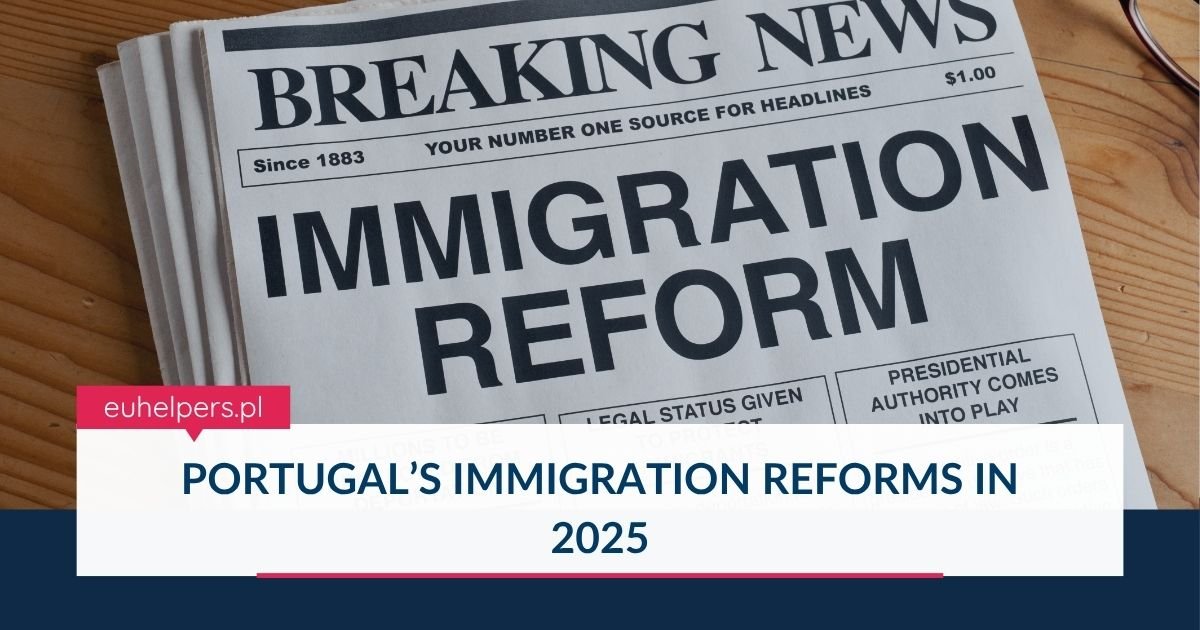Portugal has introduced sweeping changes to its immigration policies, marking a significant shift from its previously open and flexible system. The new reforms, passed by the Portuguese Parliament on July 16, 2025, bring in tighter regulations across work visas, family reunification, and residency procedures. These measures are aimed at addressing irregular migration and restructuring the country’s approach to legal entry and stay.
The legislation reflects a growing political consensus on tightening immigration controls amid a sharp rise in the migrant population. As of 2025, Portugal hosts around 1.55 million foreign nationals—approximately 15% of its total population—with immigration having quadrupled since 2017.
Here are the seven key changes introduced under the new immigration framework:
1. End of the “Expression of Interest” Route
Portugal has officially abolished the “manifestação de interesse” process, a pathway that allowed undocumented migrants to regularize their status through proof of employment and social security contributions.
However, individuals who were already working and registered with Social Security before June 3, 2024, can still apply for residency under the previous system until December 31, 2025, as part of a transitional arrangement.
2. Tougher Requirements for Job-Seeker Visas
Job-seeker visas will now be limited to individuals classified as “highly qualified,” according to criteria yet to be defined by the government. Applicants must secure employment within 120 days of arrival or face mandatory departure. Reapplication will only be permitted after a one-year waiting period.
In addition, a longstanding ban on entry without a valid work permit remains in place, ending the practice of legalizing one's status after arrival.
3. Stricter Family Reunification Rules
Foreign residents must now complete a minimum of two years of legal residence in Portugal before applying for family reunification. Exceptions are made only for minor children already residing in the country. The move reflects a broader effort to tighten access to residency through family ties.
4. Changes Impacting Brazilian Nationals
One of the more notable shifts includes the cancellation of automatic residency approvals for Brazilian nationals. This ends a long-standing preferential treatment for citizens from Portuguese-speaking countries, highlighting a shift toward a more uniform immigration policy.
5. Special Protection for Vulnerable Minors
A new visa-exempt regime will now apply to children and young people under institutional protection, offering them residence rights outside the general humanitarian framework. This targeted approach aims to ensure protection without relying on broader asylum categories.
6. Time Limits on Residency Decisions
To improve efficiency within immigration services, the Agency for Integration, Migration and Asylum (AIMA) must now issue a decision on residence applications within nine months. Extensions are only allowed in cases of exceptional complexity.
7. Establishment of a Deportation Unit
A new deportation unit will be created within Portugal’s national police force to manage the removal of undocumented migrants and enforce deportation orders more effectively.
Effective Date of New Rules
These reforms come into effect immediately following their publication in the Official Gazette and will apply to all new immigration applications submitted thereafter.
With these changes, Portugal is signaling a decisive move toward more controlled and selective immigration. For prospective migrants and their families, it is essential to understand the updated requirements and timelines to navigate the legal system successfully and avoid potential pitfalls.

